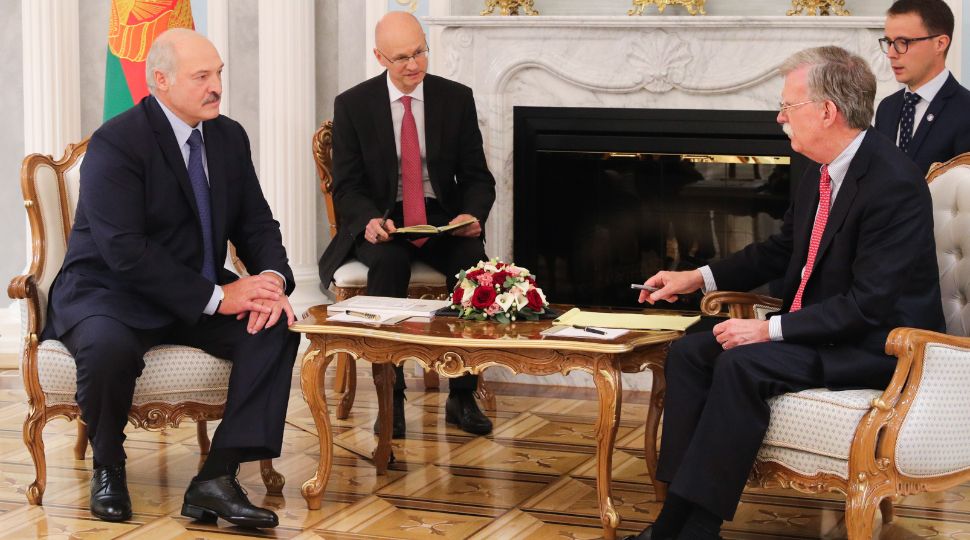U.S. National Security Advisor Bolton's visit to Minsk

What is the state of Belarus-U.S. relations?
Their relations have clearly improved over the past few years. Already in 2015, the U.S. suspended sanctions introduced after the 2006 Belarusian presidential election, which both the U.S. and the EU deemed undemocratic. The sanctions covered, among others, Lukashenka and his closest associates, as well as some Belarusian enterprises, mainly from the fuel and chemical industries, and as a result, both countries dismissed their ambassadors. The change in the U.S. policy towards Belarus is mainly associated with the Belarusian involvement in resolving the situation in Ukraine after Russia’s aggression. The Belarusian authorities, in turn, appreciate the role of the U.S. as a partner that could support Belarusian independence. Both countries cooperate mainly in the sphere of security, including in the fight against terrorism and illicit arms trafficking.
What happened during the visit?
Bolton’s talks with the Belarusian president and foreign minister touched upon bilateral issues, including restoring diplomatic relations to the ambassador level. They also discussed matters related to the security situation in the Middle East and Europe, including the possibilities of regulating the situation in Ukraine and the consequences of the demise of the INF treaty. During the meeting with Lukashenka, which instead of the planned 45 minutes lasted 2.5 hours, Bolton emphasized that the U.S. still expected Belarus to adhere to democratic reforms and respect for human rights. Lukashenka raised the issue of the need to avoid trade conflicts by the largest countries. During his stay in Minsk, Bolton also visited the Pit (“Jama”) memorial, dedicated to victims of the Holocaust.
What is the significance of the visit for the relations between Belarus and the U.S.?
The Belarusian authorities hope that Bolton’s visit will contribute to the total lifting of the U.S. sanctions, which will allow it to develop economic relations and increase Belarusian exports and U.S. investment, primarily in agriculture and new technology. In the future, both countries may be interested in energy cooperation, especially if the prices of Russian crude oil and gas for Belarus reach the free-market level. Moreover, by increasing contacts with the U.S. and the EU, the Belarusian authorities are trying to reduce their dependence on Russia.
Officially, Bolton’s visit to Minsk was recognized by Russia as an internal Belarusian affair. However, Russia considers Bolton to be a promoter of the dreaded “colour” revolutions in the post-Soviet space and the improvement of U.S.-Belarus relations has raised Russian distrust and concern.
What is the significance of the visit for Poland and the EU?
Bolton’s assurances of support for Belarusian independence and the need to increase security in Central and Eastern Europe are in line with Polish and EU policy towards Belarus. Bolton probably also explained the sense of deploying additional U.S. troops to Poland. The possible development of Belarusian-American energy cooperation will be beneficial for Poland, whose energy infrastructure Belarus can use to import raw materials. At the same time, Belarus’s attempts to conduct independent foreign and economic policy may lead Russia to increase pressure on accelerating integration processes within the Union State. That may become a challenge for EU policy towards Belarus because the Union aims to strengthen Belarus’s independence.

